Youngsters’ mental health in jeopardy due to social media. Instagram deemed the most dangerous
Anxiety, depression, body image issues, lack of sleep and cyberbullying are just a few of the negative consequences of social media use among youngsters. And a recent report suggests that from the most popular social media platforms, Instagram is the one that is putting teenagers and young adults most at risk.
RSPH and the Young Health Movement are calling for action from the government, social media companies and policy makers as a recent report painted a dark picture of how social media usage impacts young adults. The news is not all bad as sites have also provided support and the feeling of belonging to a community but experts say that measures should be put in place in order to maximize the positive outcomes while protecting children, teenagers and young adults from the harmful side-effects.
The impact of social media on teenagers and young adults during this crucial time of their development has been the focus of several studies. And as access to the internet and to computers grows, experts are worried that the negative consequences will far outweigh the positive impact that social media sites have on our lives.
Data from Britain’s National Statistics Office shows that 91% of teenagers and young adults aged 16 to 24 use social media sites. Rates are also high among 25-34-year-olds and are decreasing with age. Given these high numbers and the fact that during their formative years children and teenagers spend so much time on social media sites, the RSPH report wanted to investigate how that impacted their mental health.
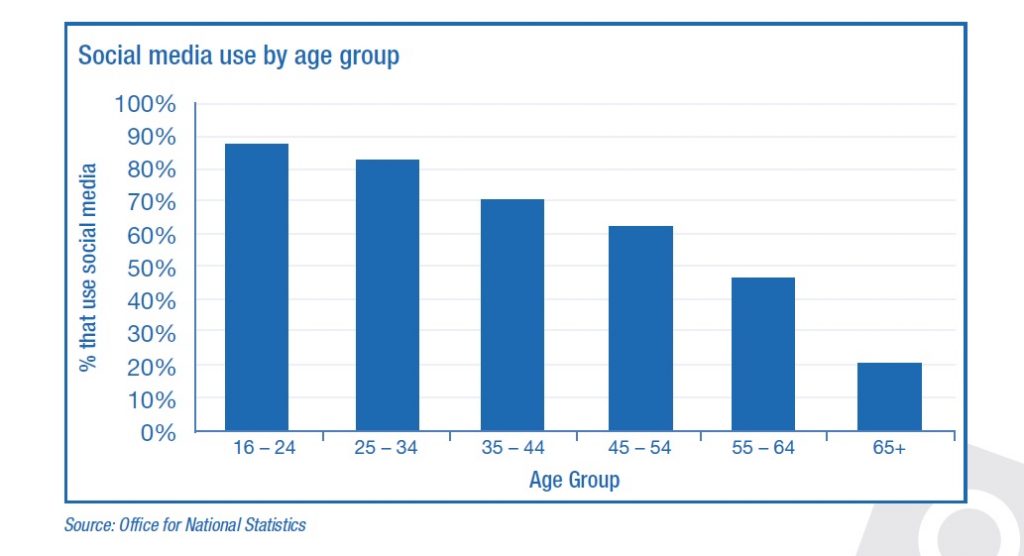
A bleak social media world
Studies have linked social media use with anxiety, depression and body image problems. The lack of sleep has become an important factor. And more and more children have to learn how to cope with cyberbullying. The low self-esteem creates additional stress, adding to the worries incited by a new concept, the Fear of Missing Out.
“Facebook depression”
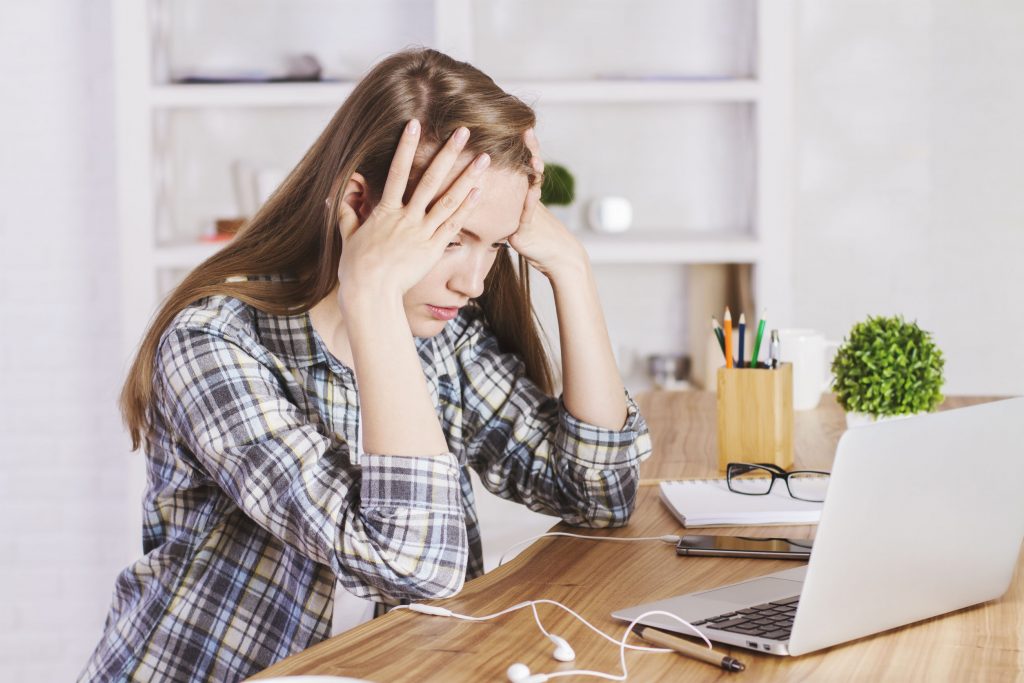
In the last 25 years, the number of people that will experience an anxiety disorder at some point in their lives has increased and this is especially true for young people for which rates have gone up by 70%. And the RSPH data shows that that young person themselves say four of the five most used social media platforms actually make their feelings of anxiety worse.
Research suggests that young people who are heavy users of social media and spend more than two hours per day on social networking sites such as Facebook, Twitter or Instagram, are more likely to report poor mental health, including symptoms of anxiety and depression which can make it hard for them to perform and can even make them afraid of leaving the house.
The feelings of panic and worry that come with heavy social-media usage are partly due to what specialists say is the “compare and despair” attitude of young people. Looking at photos and posts where people are constantly on vacation, visiting exotic places, having nights out and edited and staged photo shoots just paves the way to anxiety and sometimes depression.
The unrealistic expectations set by social media may leave young people with feelings of self-consciousness, low self-esteem and the pursuit of perfectionism which can manifest as anxiety disorders. And anxiety increases with the use of multiple social media platforms.
Using social media for more than two hours per day has also been independently associated with poor self-rating of mental health, increased levels of psychological distress and suicidal ideation. These negative feelings have become so common among social media heavy users that specialists actually have a name for them: “Facebook depression”.
One research went as far as to try to predict depression just by looking at posts on Twitter. It succeeded with 70 percent accuracy. But it also suggests that posts could serve as a tool to help users with issues before any more damage is done.
Depression and anxiety are also linked with lack of sleep. And this causes a vicious circle which is hard to break even by people that have the psychological tools they need to cope with stress, let alone children and teenagers.
Depression and sleep seem to be like a “self-fuelling” fire in which getting to little sleep leads to feeling tired, making it harder to cope with stress and worries. This paves the way to depression, which also makes it harder to get a good night’s rest and so on.
For children and teenagers sleep is even more important as their brains have not finished developing. Using social media on phones, laptops, and tablets at night before bed is also linked with poor quality sleep, even more so than regular daytime use of social media.
One in five young people says he wakes up during the night to check messages on social media, leading them to be three times more likely to feel constantly tired at school than their classmates who don’t use social media during the night.
Creating communities and building support
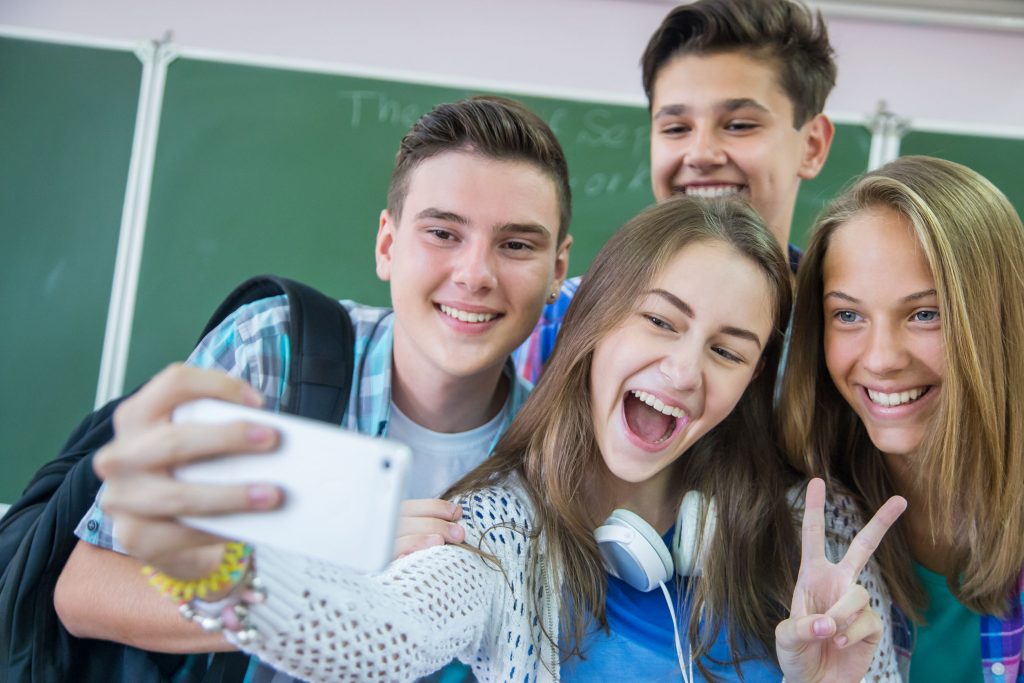
But not all is bad in the social-media world. Teenagers and youngsters testify that they have profited from the sense of community and the support they have found on social media platforms. Sites have created opportunities for sharing information and advice and also access to mental health support.
Sharing problems or issues with friends, peers and broader social networks builds up support and nearly seven in 10 teens say that they have navigated through challenging times more easily thanks to the support they found online.
And the community building is not the only positive outcome. Social networks give self-expression and self-identity a new and effective platform. Teenagers and youngsters have also benefited from the new ways of interaction. It is easier for them to make friends and keep up relationships, meeting new people and being exposed to varied points of view.
Social media ranking
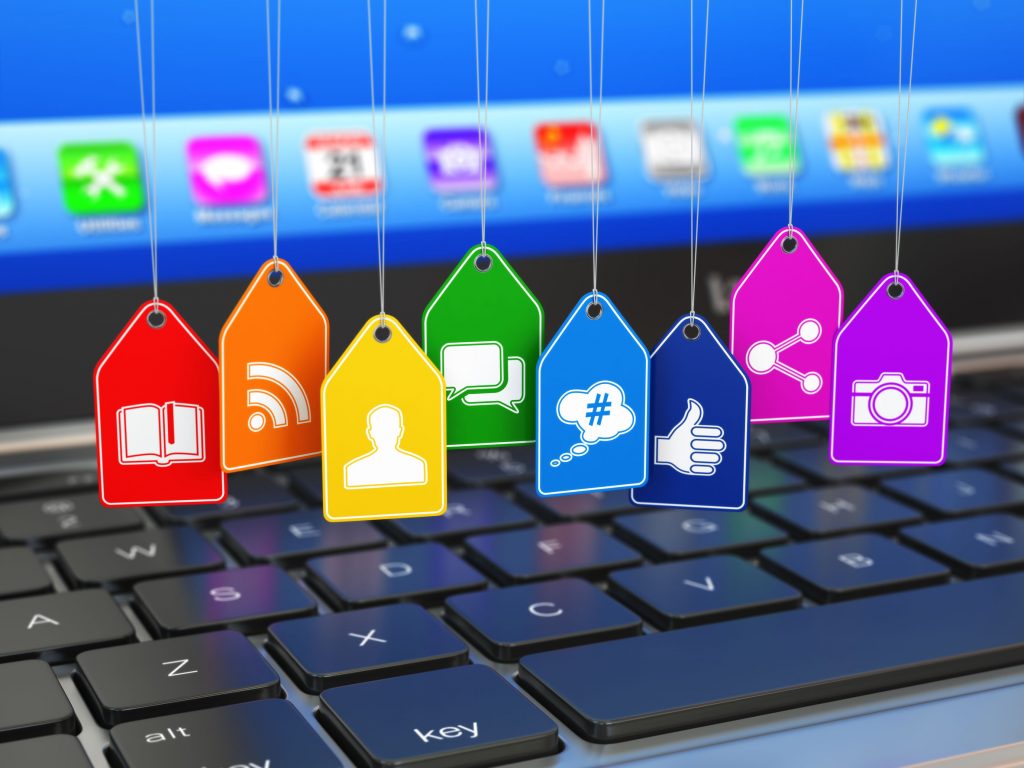
When the RSPH asked youngsters to rank social media sites using 14 health and well-being related questions, putting the most positive first and the most negative last, YouTube scored the highest. Next in line was Twitter, followed by Facebook. Snapchat and Instagram got the worst scores.
YouTube was not associated with any depression or anxiety feelings thou is scored high for sleep loss. It did not provide real world relationships but it gave users a high sense of community while also allowing for self-expression and self-identity.
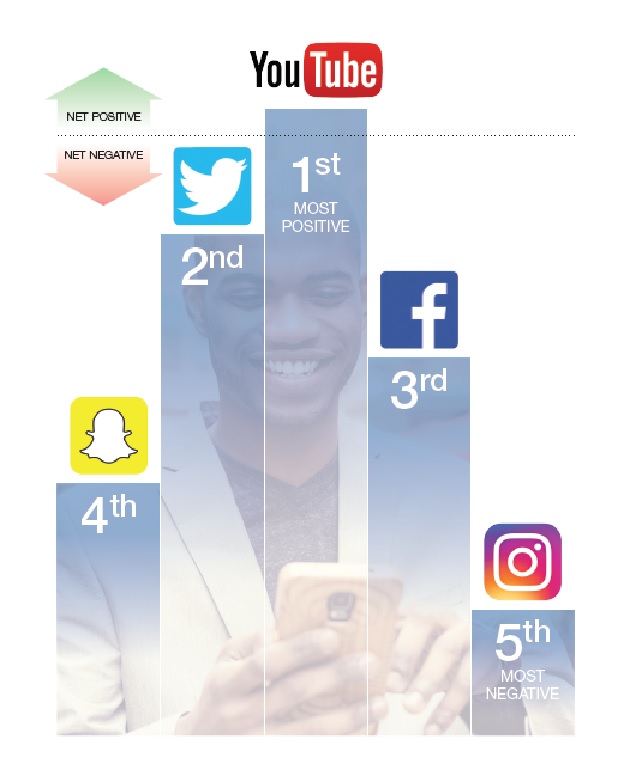
On the other end of the spectrum, Instagram was highly perceived by teenagers as causing them body image problems and it also scored high for the “fear of missing out” complex. Loss of sleep was also an issue, as well as bullying, depression, and anxiety.
From the five social media sites surveyed, Facebook ranked the first when it came to depression levels.